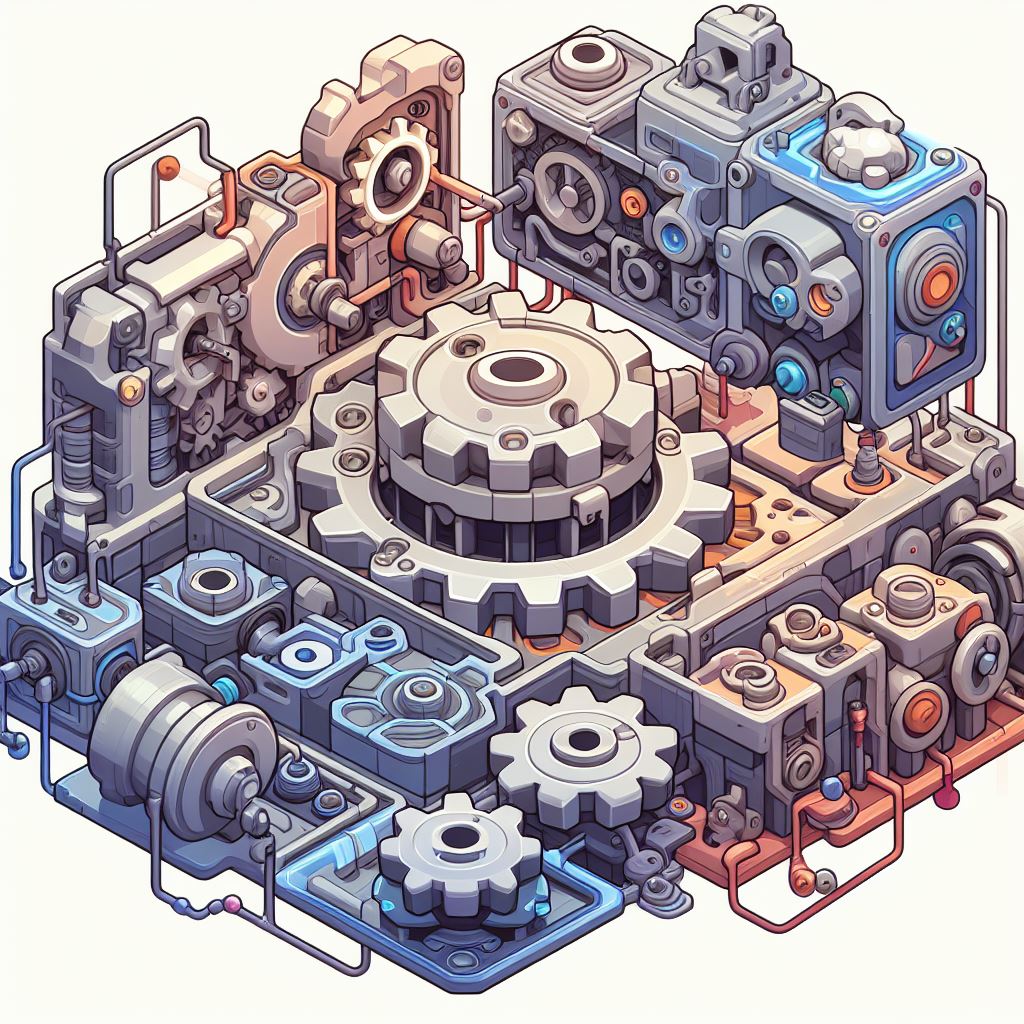
Understanding the basics of game development
Game development is a fascinating blend of creativity and technical skill, encompassing various disciplines from programming to design. Whether you're a budding developer or a curious gamer, understanding the fundamentals can enhance your appreciation and ability to create games. Let's delve into the basic concepts and steps involved in game development.
Core Components of a Game
Every game, regardless of its complexity or platform, consists of several core components:
-
Game Design: The creative aspect where you define the gameplay, story, characters, and overall experience. This includes:
- Gameplay Mechanics: Rules and systems that define how the game operates.
- Story and Characters: Narrative elements that engage players.
- Level Design: The creation of game levels or environments.
-
Game Engine: The software framework used to build and run the game. Popular game engines include Unity, Unreal Engine, and Godot. They provide tools for rendering graphics, handling physics, and more.
-
Programming: Writing the code that brings the game to life. This involves:
- Logic and Control Flow: Managing game states and transitions.
- Input Handling: Capturing and responding to player actions.
- Artificial Intelligence: Creating responsive and intelligent behaviors for non-player characters.
-
Graphics and Art: Visual elements that make up the game's aesthetic, including:
- Sprites and Textures: 2D images used for characters, backgrounds, and objects.
- 3D Models: Three-dimensional representations of characters and environments.
- Animations: Bringing static images to life through movement.
-
Sound and Music: Audio elements that enhance the immersive experience, including sound effects, background music, and voice acting.
Game Development Process
The process of developing a game can be broken down into several stages:
1. Conceptualization
- Idea Generation: Brainstorming and refining the game concept.
- Documentation: Creating a game design document (GDD) that outlines the game's vision, mechanics, story, and requirements.
2. Prototyping
- Building a Prototype: Developing a simple version of the game to test core mechanics.
- Iterative Testing: Continuously refining the prototype based on feedback and testing.
3. Development
- Pre-production: Planning and setting up the development environment, including choosing the right tools and technologies.
- Production: The main development phase where all game components are created and integrated.
- Programming: Writing and testing code.
- Art and Design: Creating assets and levels.
- Sound: Composing music and recording sound effects.
4. Testing
- Alpha Testing: Internal testing to identify and fix major bugs and issues.
- Beta Testing: External testing with a larger audience to gather feedback and uncover additional problems.
- Quality Assurance: Ensuring the game meets quality standards and is free of critical bugs.
5. Launch
- Release Preparation: Finalizing the game, creating marketing materials, and setting up distribution channels.
- Launch: Releasing the game to the public.
6. Post-Launch
- Support and Maintenance: Providing updates, fixing bugs, and adding new content.
- Community Engagement: Interacting with players and building a community around the game.
Essential Skills for Game Developers
To be successful in game development, you need a combination of technical and creative skills:
- Programming: Proficiency in languages like C#, C++, or JavaScript, and familiarity with game engines.
- Problem-Solving: Ability to troubleshoot and resolve technical issues.
- Creativity: Crafting engaging stories, characters, and worlds.
- Collaboration: Working effectively with artists, designers, and other developers.
- Project Management: Organizing tasks, managing time, and meeting deadlines.
Conclusion
Understanding the basics of game development provides a foundation for creating your own games or appreciating the complexity behind your favorite titles. By combining creative design with technical expertise, you can bring your unique game ideas to life and provide memorable experiences for players. Whether you're starting small with simple projects or aiming to build the next blockbuster, the journey of game development is both challenging and rewarding.